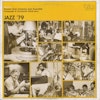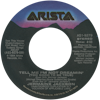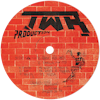Unlike the seasonal standards and pep-rally clichés that litter most collegiate albums of this ilk, the Towson State University Jazz Ensemble annauls were renowned for their inventive arrangements and refreshing compositions, thanks to musical director Hank Levy. A tireless arranger who'd come to prominence writing for Stan Kenton Orchestra, the Baltimore native's legacy took on new dimension when he returned to teach at Towson in 1968.
"If you just think about the influence of that one person, and the number of musicians whose lives he positively influenced, it's really kind of mind-boggling," said Glenn Cashman, who played sax on these sessions, later assuming directorial duties after Levy retired from Towson in 1992. "Very few people have been able to have that kind of importance in the realm of music education."
Known for his love of odd meters, Levy goes for broke on Jazz '79. Extra measures, stray rests, and general embellishments of time and space augment six cross-pollinated originals. The befittingly titled closer, "Whiplash," shifts from 7/4 to 14/8, with the subdivisions of twos and threes changing in every bar. "I don't think I played a chart in 4/4 the first three years I was at Towson," remarked John Hinchy. In further defiance of big-band tradition, microphones for this session were shoved anywhere they'd fit rather than hovering at a customary distance, rendering each harrowing performance in supernatural fidelity.
In an effort to contextualize the obstacles and inherent pressures of recording direct-to-disc, Levy isolated a singular misstep in the liner notes, inadvertently hanging sophomore bassist Drew Gress out to dry for a pickup hiccup that marred an entire side, requiring that the entire ensemble return to the top. "It wasn't a slam on Drew," defends Hinchey. "Any one of us idiots could have done something stupid; it just happened to be Drew's turn." At each side's finale, you can sense the teenagers and twenty-somethings hanging on for dear life-leaving nothing on the field, so to speak-collapsing upon completion.
"Looking back in retrospect at his work, that was kind of his strongest period," approximates Gress. While the triumphant "Chain Reaction," written for Don Ellis's Connection, is considered by many Levy's finest composition, its spirited appearance on Jazz '79 is enriched by Levy's own directorial finesse and the admiration of his impressionable players. "There was a certain heart and soul that Hank was able to draw out of his students, and I think that's evident in those albums," concludes Cashman. "Maybe you can't have that feeling when you become a professional musician, once you're moving on to the next stage."


